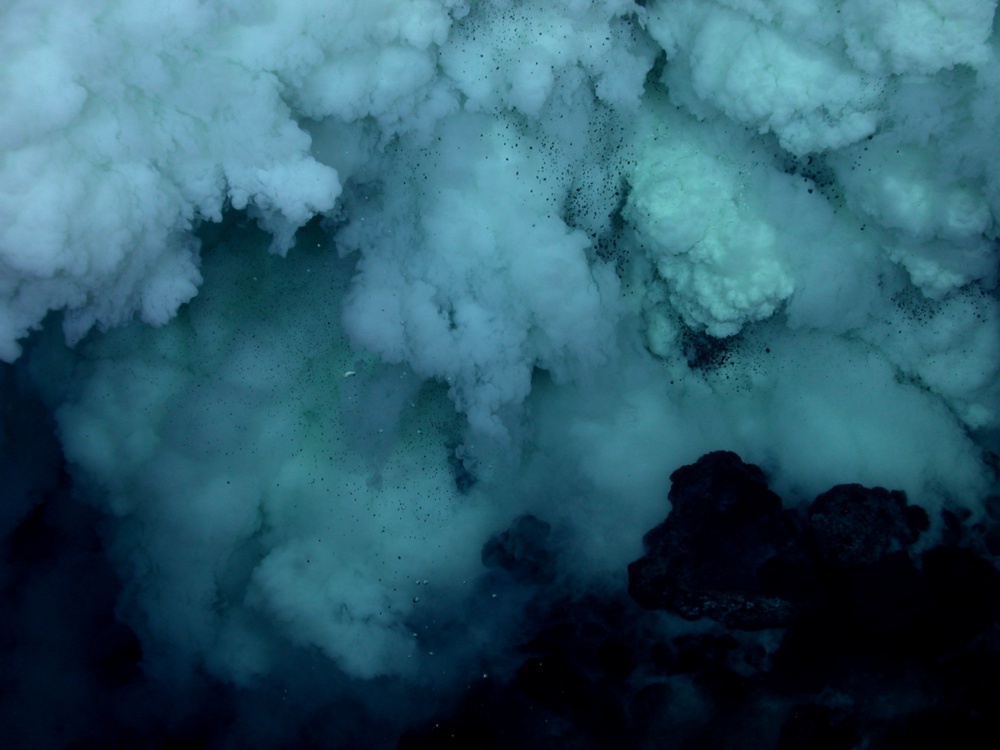
Deep sea mining must be stopped to prevent incalculable damage to humans and wildlife
We are dependent on the deep ocean for survival. In hydrothermal vents, scientists have found enzymes which have given us the ability to manufacture test kits for Covid-19 at a scale which would have been impossible without this discovery. Oceans absorb 90% of the heat produced by our carbon emissions and their ecosystems are vital in the fight against climate breakdown. Yet we know very little about the deep ocean.
We have accurately mapped less than 0.05% of the ocean floor, and hydrothermal vents were only discovered at all in 1977. While we have maps of some parts of the ocean floor, they are nowhere near detailed enough to pick up every hydrothermal vent. With their destruction we could lose potentially unique environments.
We do know that the vents are home to many creatures adapted to their extreme environment and found nowhere else, from the ‘yeti crab’ to the fascinating scaly-foot snail, which incorporates iron into its shell to survive in the deep ocean. Also known as the sea pangolin, the scaly-foot snail was discovered only in 2015, and is already endangered because of deep-sea mining.
- Join our call for a moratorium on deep sea mining and protection for ocean habitats here
A new threat below the waves
Deep sea mining is poised to be a huge industry. As well as wildlife, parts of the ocean floor are rich in deposits of copper, nickel and other valuable ores. The method being rolled out is simple. The rocks and vents are crushed up by underwater machinery, and the fragments extracted to the surface to be sorted. This is a little like driving a wood chipper into a forest and collecting what it spits out behind it; anything unfortunate enough to be caught in the way is crushed along with the rocks.
Contrary to the claims of mining companies, irreplaceable ecosystems are in the firing line – one area targeted for mining has ‘one of the most diverse communities […] in the deep sea’, where more than half the species collected in a 2016 study were new to science.
Trial mining is already underway in Japan. So far, this has been of vents believed to be inactive, but even so we don’t understand what the impact on wider ocean-floor ecosystems could be. It is likely to be highly damaging; while the direct effect on hydrothermal vents is obviously devastating, mining will also cause immense disturbance of sediments, noise, vibrations and light pollution over a much larger scale.
This is particularly concerning as underwater noise is understood to have a serious effect on ocean wildlife, including whales and other marine mammals. Even leaving aside the fact we should not destroy species given their intrinsic right to our shared planet, we rely on these animals to mitigate climate change. If we proceed with deep sea mining according to current plans, we will cause devastation we cannot predict.
It is more than just wildlife which will be affected. A deep sea mining venture in Papua New Guinea, known as ‘Solwara 1’, collapsed last year after it was strongly opposed by local indigenous communities on practical and spiritual grounds. Practically, it was affecting shark fisheries, which are a key source of food security for indigenous people. Spiritually, the culture of the indigenous people of this area stresses a strong connection between people and the seabed.
“I am connected to the deep ocean, to its masalai [spirits], its fish and its volcanoes,” said one indigenous participant in a discussion with researchers. “But how do I show this company that? They [Nautilus Minerals, responsible for Solwara 1] think that it will not affect people like other mining but it does! How do we show this company that when they mine this seabed, they mine our culture!”
How to respond
We must not repeat the mistakes we have made in terrestrial ecosystems and the rest of the ocean, where priceless, irreplaceable wildlife, in many cases with great potential importance for humans, has been indiscriminately wiped out.
Even if we did strip mine the entire seabed, it would only buy us time before we needed to change how we consume precious metals anyway – our global consumption is inherently unsustainable. There can be no justification for the destruction deep sea mining brings now, let alone what will happen when it is widespread.
For these compelling reasons EJF is calling for a moratorium on deep sea mining.
The cover image is reproduced courtesy of NOAA under a Creative Commons License.
SIGN UP FOR OUR EMAILS AND STAY UP TO DATE WITH EJF